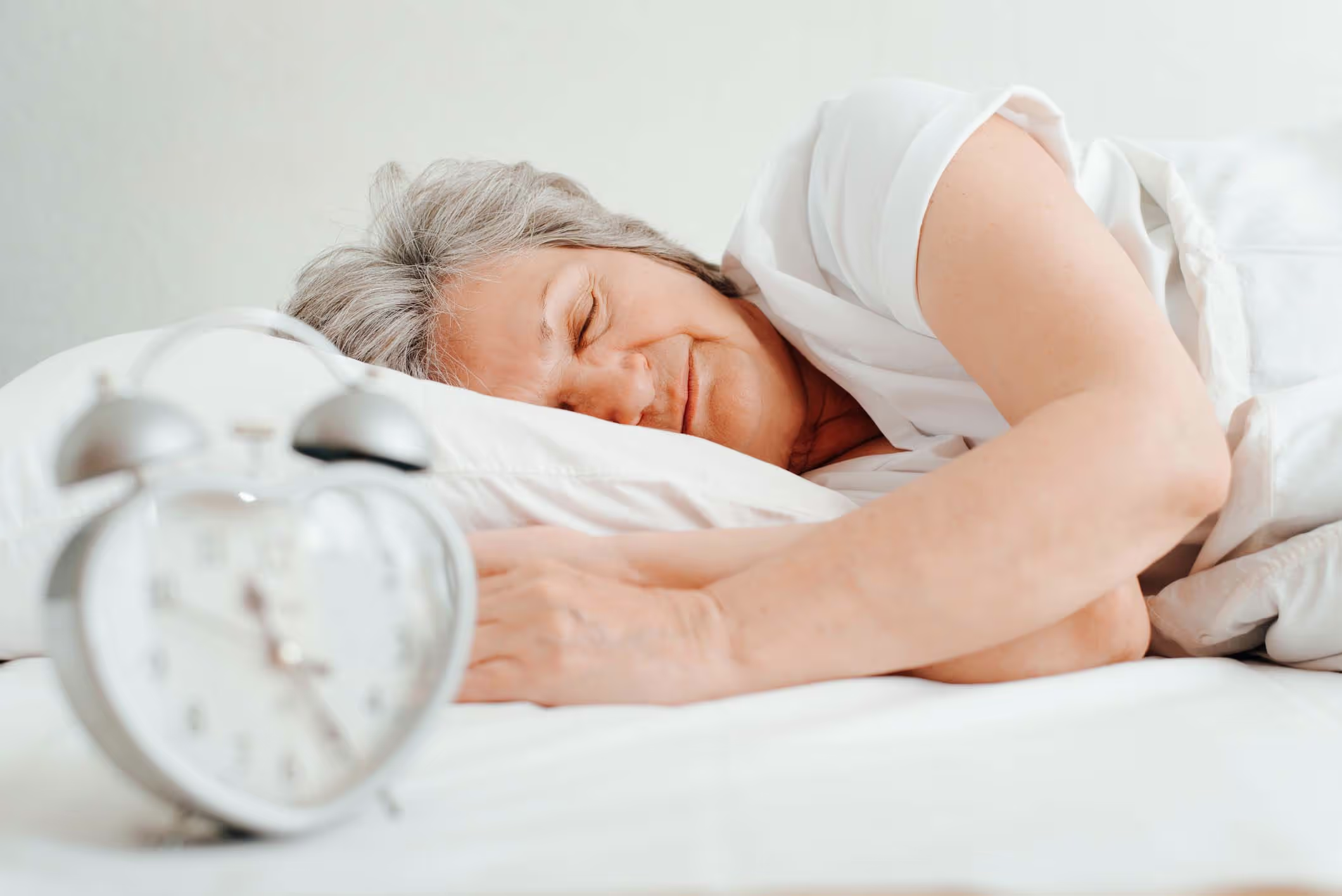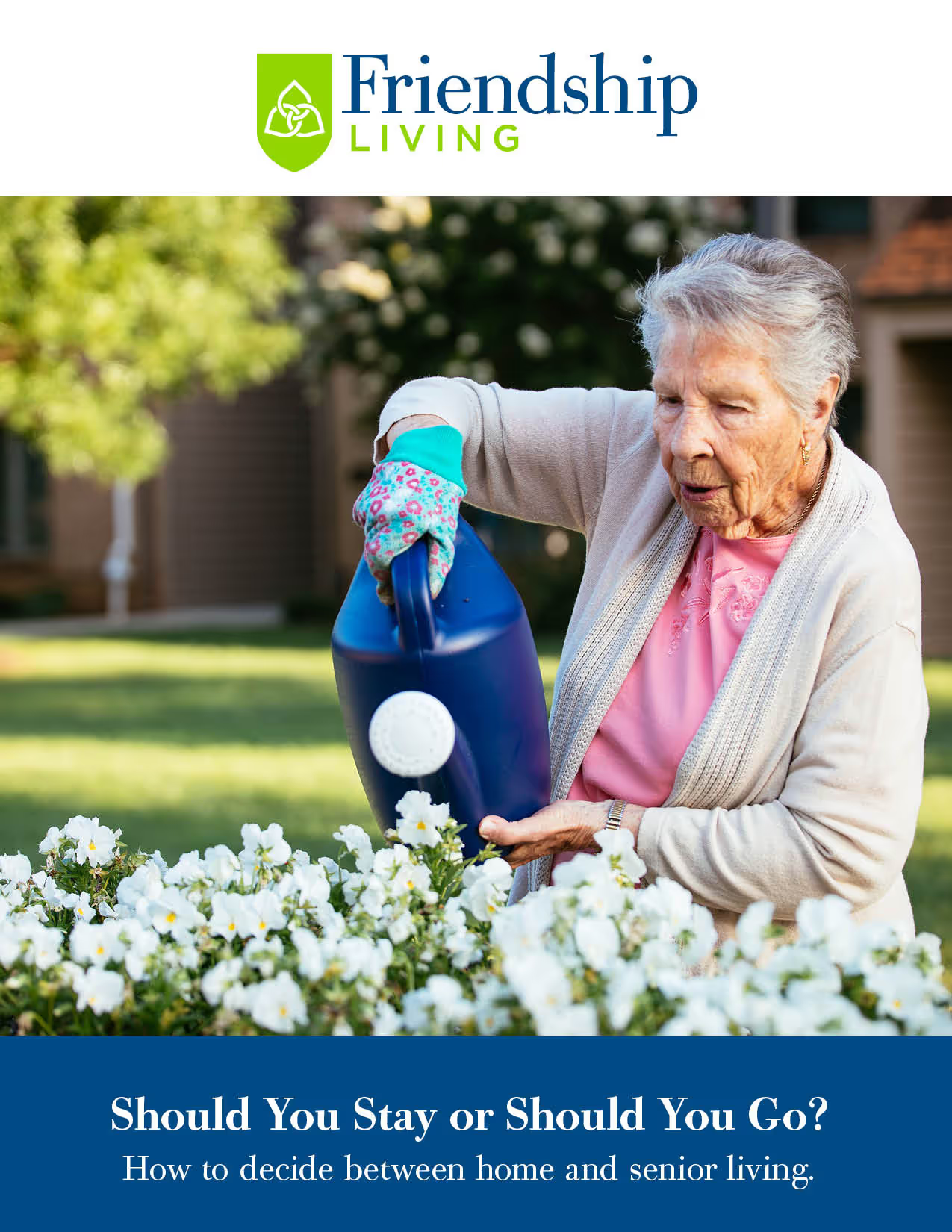
Tips for Older Adults to Get a Good Night's Sleep

If you're finding it harder to get a good night's sleep as you get older, you're not alone.
The problem isn't just an annoyance; not getting enough sleep and/or poor sleep quality are risks to your health, particularly as an older adult. Here's how it can affect your health, why sleep problems are so common in older adults, and what you can do about it.
The facts on sleep for older adults
The CDC recommends that adults between 18 and 64 get seven to nine hours of sleep per night, and those 65 and older get seven to eight hours. Yet, according to CDC data, 26.1% of all adults 65 and older in the United States report sleeping for less than seven hours per night on average.
What are some of the reasons older adults struggle with sleep? The most common factors include insomnia, sleep apnea, restless leg syndrome, arthritis, side effects of medications, and even changes in the body's internal clock.
It's not just the number of hours you sleep, though, it's also the quality of the sleep you get that's important. Signs of poor sleep quality are taking more than 30 minutes to fall asleep after getting into bed, repeatedly waking during the night, and/or feeling tired after sleeping seven to eight hours.
The health impact of poor sleep
You may be surprised to learn that the health risks of not getting enough good sleep rival those of physical inactivity. In the short term, sleep deprivation can cause excessive daytime sleepiness, moodiness, impaired memory and concentration, lack of alertness, and even a greater likelihood of falls and car accidents. In the long term, it can put you at risk for the following.
- Premature wrinkling and dark circles under the eyes
- High blood pressure
- Diabetes
- Heart attack
- Heart failure
- Stroke
- Obesity
- Depression
- Reduced immune system function
Safe, healthy ways for older adults to get good sleep
Now that you know why getting a good night's sleep is so important for older adults, the question is, what can you do to improve your sleep habits? These tips can help:
- Follow a regular sleep schedule – Try to go to sleep and wake up at the same time each day.
- Minimize napping – If you do nap, do so during the day, but avoid it entirely in the late afternoon or early evening.
- Watch what and when you eat and drink – Avoid large meals and caffeine close to your bedtime.
- Stay active – Regular exercise can help regulate sleep patterns but avoid it within three hours of bedtime.
- Create a space conducive to sleep – Keep your bedroom quiet and at a comfortable temperature, use low lighting in the evenings, and leave devices and screens elsewhere.
- Follow a bedtime routine – To help you wind down for better sleep, take time to relax before bed each night with a book, music, or even a warm bath.
Get better sleep in a senior living community
Older adults can certainly follow these tips for a good night's sleep at home, but in a senior living community, they may find it even easier to follow through on them because the environment in senior living communities like ours is designed specifically to help older adults thrive. We can help you maintain proper nutrition and stay active, maintain social connections, and live purposefully, all of which can help you regulate a sleep schedule and minimize napping. Not to mention the added peace of mind that comes from safe, comfortable surroundings where support and convenience are always at hand.

